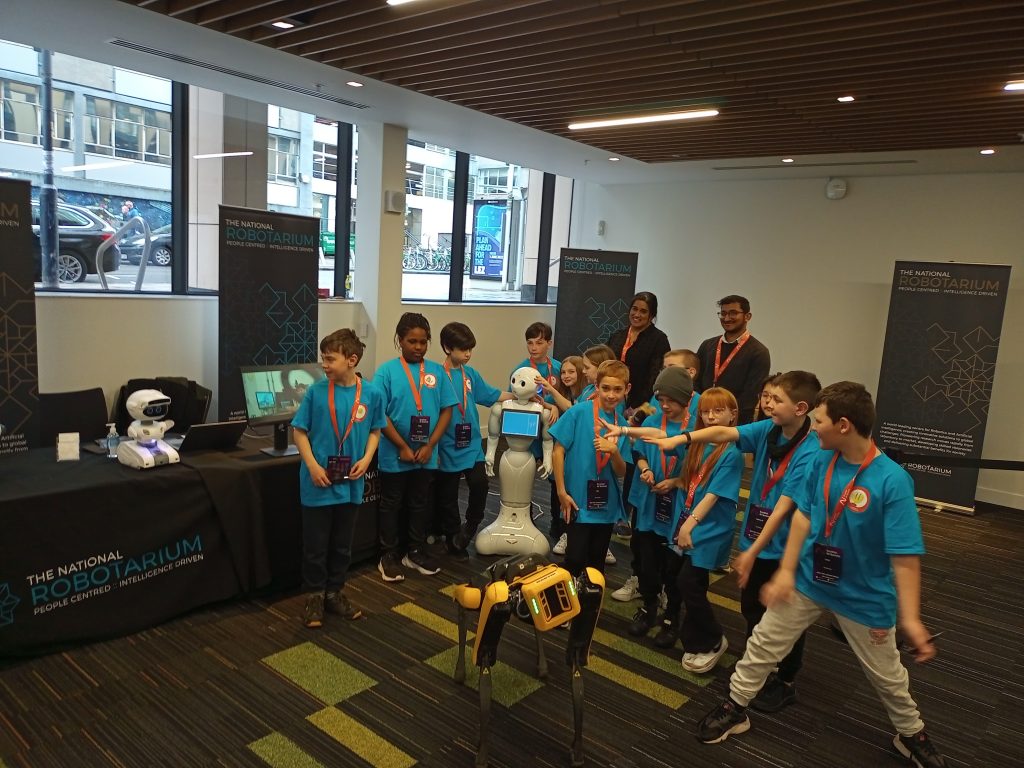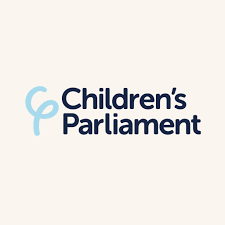Safer Internet Day 2024: Exploring children’s rights and AI
Safer Internet Day is the UK's biggest event highlighting the importance of online safety, and for 2024, the theme is ‘Inspiring change? Making a difference, managing influence and navigating change online’.
In the past few years, one of the biggest changes to the online world has been the rapid and widespread availability of Artificial Intelligence (AI), with many experts now looking for ways to balance the benefits of chatbots and content creation tools with keeping children and young people safe online.
As Safer Internet Day (click here for more) kicks off today, February 6, here, we highlight an important project being run by the Children's Parliament which is placing children’s views at the forefront of AI implementation in Scotland.
(This article is an excerpt from an interview featured in Issue 5 of Insight, the bi-annual publication for Children in Scotland members. Click here to find out more)
Artificial Intelligence (AI) is a global phenomenon that presents challenges and opportunities for children and young people around the world. Scotland’s AI Strategy, published in 2021 by the Scottish Government and the Scottish AI Alliance, set out the vision for the development of “trustworthy, ethical and inclusive” AI with children’s human rights at its centre.
The strategy highlighted the importance of adopting UNICEF’s policy guidance on AI, which was created from the UN Convention on the Rights of the Child (UNCRC), enacting policies and systems that “protect children, provide equitably for their needs and rights, and empower them to participate in an AI world by contributing to the development and use of AI”.
With the strategy published, the Scottish Government needed the right team to ensure children’s voices were being listened to in the delivery of the vision, and three organisations were called on to provide knowledge of AI systems, policies and ethics, and children’s rights and participation – Children’s Parliament, the Scottish AI Alliance and The Alan Turing Institute.
The three organisations worked together to launch the Exploring Children’s Rights and AI project (click here for more), which is being held in three stages until 2024. The first stage was delivered between August 2022 and March 2023, and explored children’s understanding of AI, introduced the subject of children’s rights, and shared how AI systems could impact them.
Engagement work took place in four different schools in Glasgow, Edinburgh, Stirlingshire and Shetland, and Children’s Parliament, in partnership with representatives from The Alan Turing Institute, held initial workshops with 87 children aged between seven and 11 – known as “the AI team”. Alongside these sessions, a small group of three or four children from each class was also assigned the role of project “investigators”, tasked with taking a deeper dive into the various issues surrounding AI, and attending online sessions alongside the project leads.
During the session, a long list of issues was reduced to a few focus areas. As well as sharing that they felt strongly about AI implementation keeping them safe and protecting their privacy, the project participants also voiced concerns about how effectively AI could be used as a tool for teaching, with worries that it might be relied on too heavily. The children also highlighted inconsistencies in the teaching around AI across different schools and felt it was vital that all children learn about AI.

However, throughout the first exploratory stage of the project, the partner organisations found that the children tended to focus on the positive uses of AI and the benefits its implementation could bring to their lives.
Children's Parliament's Project Lead, Gregory Metcalfe, said, "Overall, the children have been excited to learn about AI and are broadly optimistic about its potential to affect change in the future. They see a role for AI in supporting children's human rights"
In the project's second phase, the children are applying the themes developed in phase one to real-life AI systems, attending workshops with developers and policymakers, and sharing their views on current AI projects in development.
"What we're working towards is culture change within the sector, " said Gregory. "We're aiming to reach a point where those involved in making decisions about AI developments think about children's rights from the outset of any new innovation."
The rate at which AI is developing, and the changes to legislation that will be required, mean it is hard to know exactly what “child-centred AI” will look like in the future. What is clear, however, is that to ensure AI is implemented in Scotland in a way that will benefit children and their rights, the sector cannot afford to sit back and watch.
"It is important that we continue to collectively hold the AI sector to account," said Gregory, "ensuring children are meaningfully involved in decision-making when it comes to the development, use and regulation of AI, and the UNCRC is recognised by those involved as a baseline for ensuring that children's rights are upheld."
Exploring Children’s Rights and AI is an ongoing project running until 2024.
Click here for more information

Exploring Children's Rights and AI
Find out about the Children's Parliament's project exploring the world of AI with children across Scotland.
Find out more
Annual Conference 2024
Join us on 29 & 30 May at Scottish Gas Murrayfield Stadium, Edinburgh
Click here to book

Our membership offer
Be part of the largest national children's sector membership organisation in Scotland
Click here for more
Participation and Engagement work
Find out how the inclusion and participation of children and young people informs our work.
Click here for more